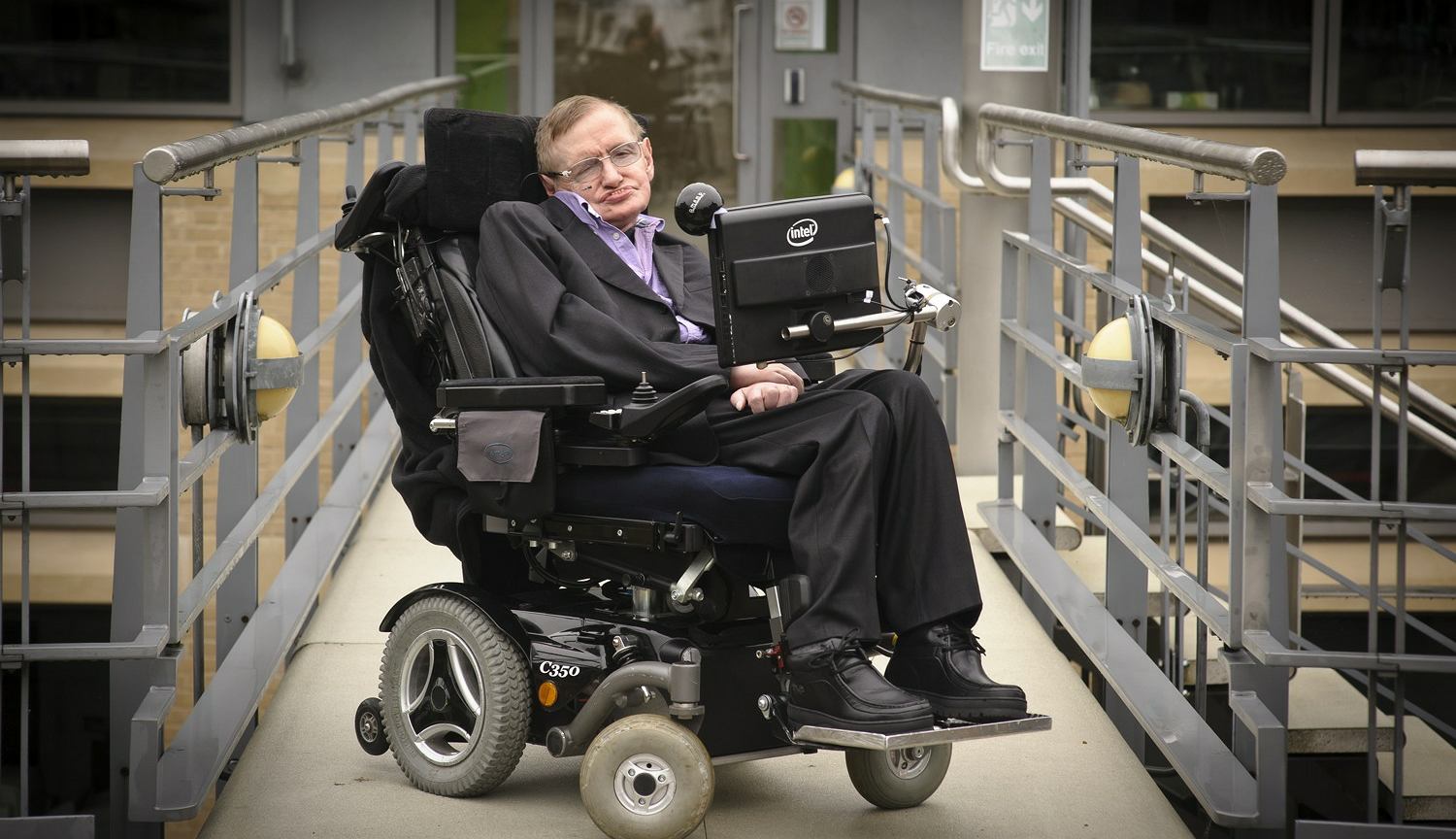Physicist, professor, and author Stephen Hawking died Wednesday at age 76, some five decades after being diagnosed at age 21 with amyotrophic lateral sclerosis, or ALS.
“ALS is a subset of a group of diseases called motor neuron diseases,” explains neurologist Heather A. Lau, MD, assistant professor in the department of neurology and director of the Lysosomal Storage Disease Program at NYU Langone Health. “ALS is typically a rapidly progressive neurologic disorder, progressing to death within a few years. Over time, you have progressive muscle weakness, which can include the muscles for swallowing and breathing.”
At the time he was diagnosed, Hawking was told he probably had about two years to live. As his condition worsened, he became confined to a wheelchair and was only able to communicate by using a single cheek muscle to control a computer system that facilitated his speech.
But rather than dying, he continued his world-renowned work for decades. That’s highly uncommon. Typically, people with ALS live just two to five years after they’re diagnosed, according to the ALS Association. Recent medical advances have extended that rate, with about 20% of patients now living five years or more and 10% living more than 10 years.
But Hawking survived an extraordinary 55 years after his diagnosis and is thought to be the longest-living person with ALS. How did he do it?
A number of factors contribute to how long a person with ALS stays alive, Dr. Lau says. For starters, there are different forms of ALS, some of which progress more rapidly than others. While Dr. Lau has never treated Hawking, she hypothesizes that he could have had a form of ALS or another motor neuron disease that simply didn’t progress as quickly as a more typical presentation of ALS would.
His lifespan could also be attributed to genetic factors that slowed the disease. In addition, ALS survival can depend on how the patient is cared for. “In this day and age, we are able to provide such wonderful support for breathing, for feeding, and physical therapy and rehab to maintain muscle strength,” says Dr. Lau.
While there is no cure for ALS, clinical trials suggest newer medications may further slow the disease. And because experts still don’t entirely understand what causes ALS, there may be other unknown factors that affect how long a person survives, Dr. Lau adds.
It’s easy to believe that Hawking’s impressive mind had something to do with his survival, but there’s no evidence that intellect plays any role in how ALS progresses, Dr. Lau says. Still, his genius may have helped him develop strong coping mechanisms, which enabled him to stay alive.
“He adapted, in a way, by harnessing or developing the aspect of him that was not degenerating,” she says. “He adapted to having what was initially a terminal diagnosis and was able to continue to contribute to his field, and that’s amazing. That speaks to his resilience.”
Hawking himself acknowledged the gravity of his diagnosis—and how he had pushed beyond it. “I have lived with the prospect of an early death for the last 49 years,” Hawking said in an interview with The Guardian in May 2011. “I’m not afraid of death, but I’m in no hurry to die. I have so much I want to do first.”




